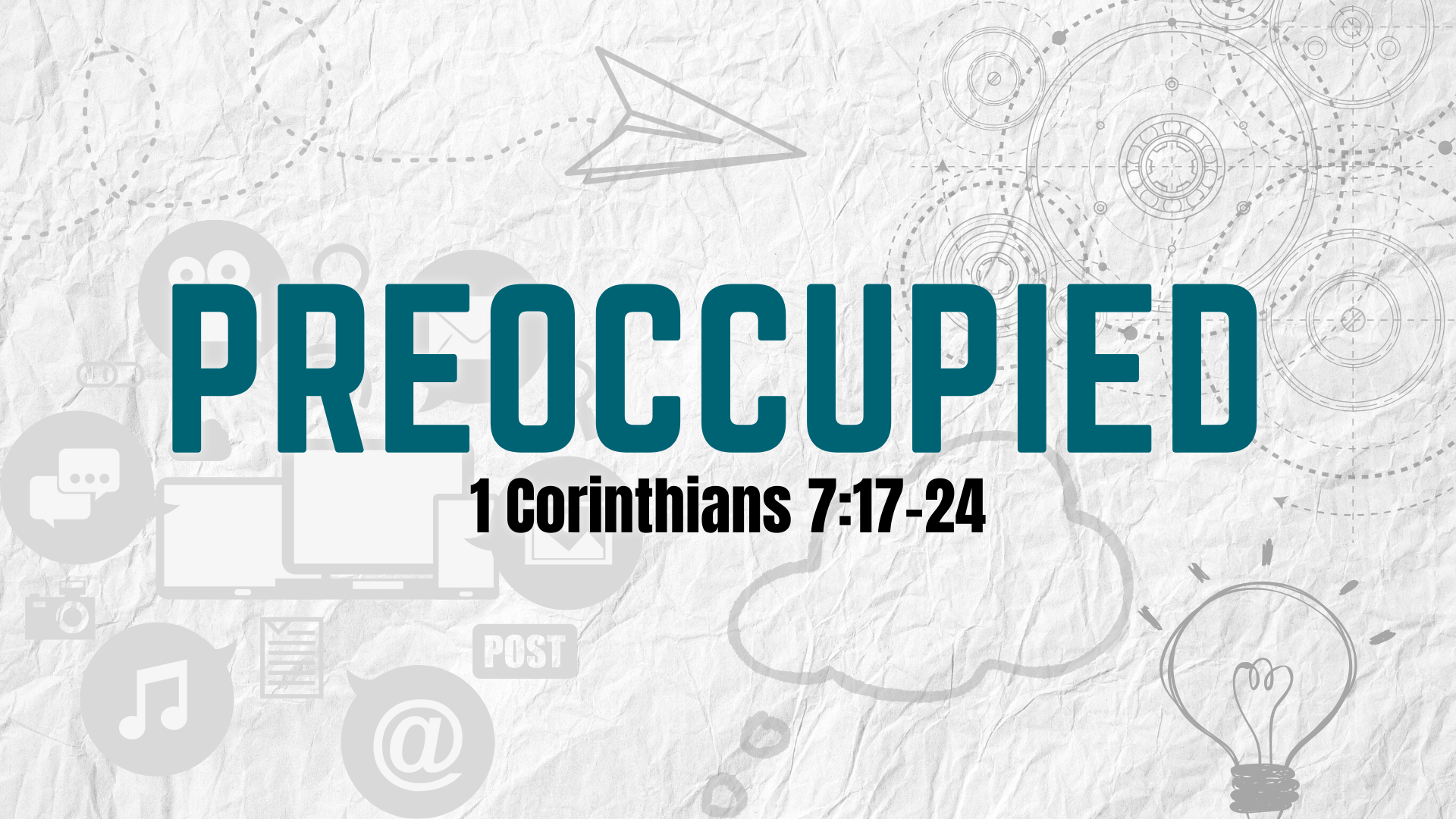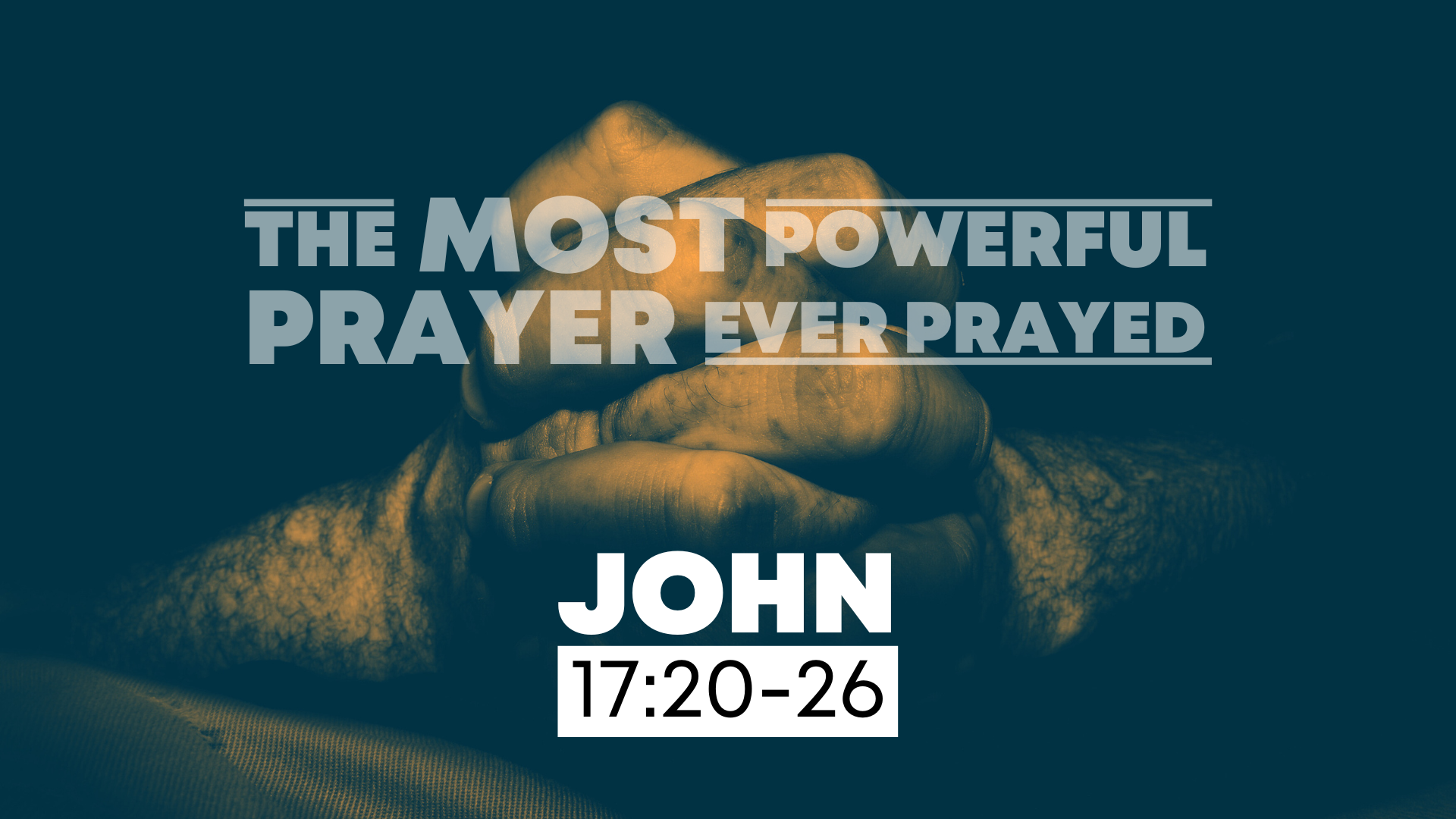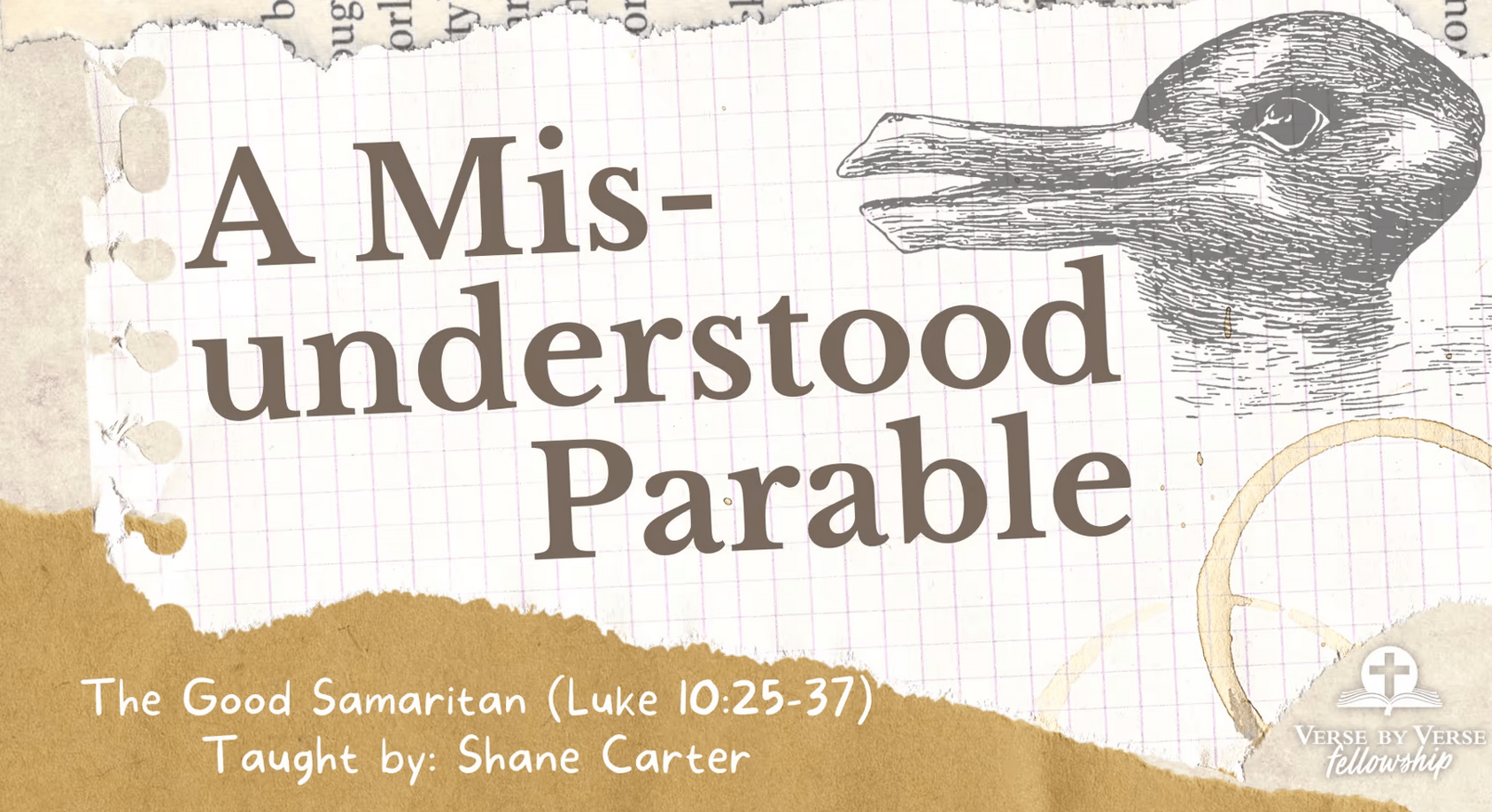MANUSCRIPT
Well, it is great to be back with you again on this extended Thanksgiving Day weekend, studying God’s Word. Let’s start with prayer.
Realizing that it has been awhile since I preached 1 Timothy, let’s go back and review what we’ve studied so far.
As I mentioned previously, Paul’s first letter to Timothy was written approximately 30 years after Jesus’ death and resurrection– between Paul’s third and fourth missionary journeys. Unlike most of Paul’s other letters to churches, this is a very personal letter to Timothy -- someone he loves as a son and someone who has taken on a calling as Paul’s representative at the church in Ephesus. The letter is noteworthy because it provides the longest description in the New Testament about church organization including the qualifications and roles of elders and deacons (which we just reviewed earlier this month as we appointed a few deacons to serve the church’s needs.) 1 Timothy is also known for its emphasis on preaching sound doctrine in the face of opposition. As noted on the slide, this short book of six chapters is packed with much guidance … for Timothy, the Church at Ephesus and us.
In my first sermon, we covered the first seven verses of the letter and discovered together some powerful applications.
We studied the relationship between Paul and Timothy … like a father to a son. We learned from this relationship that Christians are called to make disciples and that disciple-making requires relationship building. Jesus emphatically commands us to do so in the Great Commission when he states, “Go therefore and make disciples of all nations, baptizing them in the name of the Father and of the Son and of the Holy Spirit.” Discipling and being discipled is a lifelong pursuit as a brother or sister in Christ.
We also realized during our first study that like Timothy, God may put us in places where we need to be on guard against false doctrine and confront it head on. In doing so, we need to protect those entrusted to us – folks we are shepherding, letting love guide our steps.
Finally, we learned that in the face of opposition, we need to pray, act as we lean on God’s Word and “stay the course” in spite of verbal or physical persecution. Remember God is with us in these trials, and “walking through these struggles” is how we grow in our Christian walk.
Today, we will pick up on a couple of these themes and more. The title of my (and really Paul’s.) message today is “Cling to the Gospel.” Let’s get started by diving back into 1 Timothy, Chapter 1, reading first verses 8-11 from the ESV.
8 But we know that the Law is good, if one uses it lawfully, 9 realizing the fact that law is not made for a righteous person, but for those who are lawless and rebellious, for the ungodly and sinners, for the unholy and profane, for those who kill their fathers or mothers, for murderers 10 and immoral men and homosexuals and kidnappers and liars and perjurers, and whatever else is contrary to sound teaching, 11 according to the glorious gospel of the blessed God, with which I have been entrusted.
Paul asserts right up front that the Law is good and has a purpose. So, let’s spend some time understanding the Law to which Paul refers and the purpose of the Law.
In verse 8, Paul is referring to the Jewish Law or Torah which translated from Hebrew to English means “the law.” The Torah consists of what we commonly refer to as the first five books of the Bible – Genesis, Exodus, Leviticus, Numbers and Deuteronomy. The Torah is where you'll find the Jewish Law consisting of 613 commands, the most famous of which are the ten commandments given to Moses on Mount Sinai.
So, the intent of this Jewish Law was to guide the behavior of the Jew. Paul knew this well having been raised in the Jewish faith. In Paul’s letter to the Church at Phillipi, he recounts his heritage and training in the Jewish faith. Paul states in Chapter 3 of this letter,
“ If anyone else thinks he has reason for confidence in the flesh, I have more: 5 circumcised on the eighth day, of the people of Israel, of the tribe of Benjamin, a Hebrew of Hebrews; as to the law, a Pharisee; 6 as to zeal, a persecutor of the church; as to righteousness under the law,[c] blameless.”
So, Paul boasts to this young Macedonian church about his heritage as a member of the Jewish tribe of Benjamin and a Jewish zealot. Indeed, Paul knew the Torah, the Talmud and all of the Jewish teaching teachings on the Law. So, why is Paul – a convert to Christ -- now reminding Timothy, a young Christian leader about the Jewish Law. Didn’t Christ come to save a lost people who could not keep the Law? My sense is that Paul’s intent here is to warn his young protégé about how false teachers unlawfully use the Law to add works (and in many cases, add to their own financial gain) to God’s plan for salvation.
Beyond guarding against false teaching, God’s plan for redemption was not about abolishing the Law, but helping us as sinners to use the Law for making known our sin and shining a bright light on our need for a Savior. Please turn with me to Galatians, Chapter 3, 23-26. Reading again from the ESV …
23 Now before faith came, we were held captive under the law, imprisoned until the coming faith would be revealed. 24 So then, the law was our guardian until Christ came, in order that we might be justified by faith. 25 But now that faith has come, we are no longer under a guardian, 26 for in Christ Jesus you are all sons of God, through faith.
Without the knowledge of sin and its ensuring judgment, our understanding of salvation would be limited and we could be misled about our desperate need for a Savior. As pastor and Bible teacher John MacArthur described it, “The law was given to do, to tighten the screws on the sins of men, that in anguish, they might cry out for a deliverer.” The law shows us that we were trapped in a prison, and the only way out of the prison is the grace available through the promise by faith.
I can see this truth in my own life. I grew up in a family with a guiding principle that if you focused on doing good and worked hard enough, you could achieve anything in life. This principle seemed to be working in my life until the point I married Annie in 1983. A year later, the Air Force moved us to Germany and away from all family and friends. Annie gave birth to our first child and she quickly went into post-delivery depression. I tried applying my guiding principle. No matter how hard I tried, Annie and I grew further apart. God was showing me that doing good (the Law) and works were not enough … I cried out for God’s mercy … and he pointed me away from “doing things my way” to a Savior and an abiding trust in Jesus. I have been and continue to be eternally grateful to His grace.
Let’s go back to our text. In verses 9 and 10 of 1 Timothy 1, Paul highlights transgressors of the Law. He starts with lawless people who refuse to recognize law and then in the same couplet, identifies rebellious individuals who refuse to obey laws. In the next couplet, he calls out ungodly men and women who have no regard for God and sinners and who live in opposition to God. Third, Paul then lists unholy people and profane persons who dishonor a Holy God and curse His Holiness. These three groupings of people all represent violators of the first three commandments as depicted on this slide.
Paul then continues with a listing of violators for other Commandments. These include the violent. He highlights murderers and those who act violently towards or have no respect or affection for their own parents – from the Greek, translated as father-strikers and mother-strikers. Paul then identifies two types of immoral humans – ones who deal perversely with people of the opposite sex, and others who abuse people of their own sex; both of these sins are violations of the seventh commandment. The last group of sinners that Paul calls out are the kidnappers who steal along with liars and perjurers who bear false witness. All of these sins were very common in the paganistic culture of Ephesus and discussed at length in Paul’s letter to the church at Ephesus. See especially Chapters 4 and 5 of this letter and Paul’s guidance against these sins to the new Ephesian believers.
Paul concludes Verse 10 of 1 Timothy with the statement, “and whatever else is contrary to sound teaching.” So, what is sound teaching? Paul defines sound teaching later in his letter to Timothy. Turn with me to 1 Tim 6, verse 3. Here Paul states that sound teaching or doctrine must “agree with the sound words of our Lord Jesus Christ and the teaching that accords with godliness.” So, sound teaching or doctrine is teaching from God about God that directs us to the glory of God. Though the triune God is the ultimate source of doctrine, God has chosen to minister doctrine to us through His prophets and apostles in Holy Scripture. Until the day when God speaks to us face-to-face in His eternal kingdom, Holy Scripture is the source and norm of sound doctrine (2 Tim. 3:16.)
Verse 11 in his first letter to Timothy also highlights the privilege Paul felt in being able to share the gospel with others. Entrusted by God, Paul clearly saw sound teaching as gospel centered. Flip ahead to 1 Timothy 3:16 to better understand Paul’s gospel testimony. He states,
16 Great indeed, we confess, is the mystery of godliness:
He was manifested in the flesh,
vindicated by the Spirit,
seen by angels,
proclaimed among the nations,
believed on in the world,
taken up in glory.
So, what does this mean for us? Though times and customs have changed, God's teaching – through the prophets and His Son -- serves as a bedrock of guiding ideals to help the people of God (both then and now) live in such a way as to love God and love neighbor. But, are we living lives IAW these Godly principles?
Outside the church, we see a fallen world with division among peoples. It is clear from Scripture that this situation will only worsen. However, when we look inside the church, we too often see unresolved conflict among brothers and sisters. We need to do better with each other and be a better witness to a lost world. In fact, I have been praying with fear and trepidation for God to help me with my own obedience and witness.
As a Christ follower, God indwells us with His Holy Spirit who should be guiding our actions and convicting us of our sin. Failure to follow the Spirit’s direction could lead to not only sin in our lives, but adverse consequences in the lives of others for whom God has entrusted to us.
Reflection. So, let’s take a few minutes to reflect on where we are with our life. The law, as it did in Paul and Timothy’s days, points to the need for a Savior from our sins. Are we consistently sinning in one aspect of life? Do I consistently pray for God to help me with this sin? Am I ignoring the Holy Spirit’s answer and direction?
Are there people entrusted to me where I see transgressions and imprisonment as Paul describes? How can I help them?
For parents, are we spending time with our children imparting to them sound teaching and doctrine? See Deut 6:6-7.
6 And these words that I command you today shall be on your heart. 7 You shall teach them diligently to your children, and shall talk of them when you sit in your house, and when you walk by the way, and when you lie down, and when you rise.
Ok, as we move forward in this letter to Timothy, Paul now provides a powerful exposition about his own sinful state and importantly God’s grace and mercy in his own life. Starting in verse 12, we read …
12 I thank Christ Jesus our Lord, who has strengthened me, because He considered me faithful, putting me into service, 13 even though I was formerly a blasphemer and a persecutor and a violent aggressor. Yet I was shown mercy because I acted ignorantly in unbelief; 14 and the grace of our Lord was more than abundant, with the faith and love which are found in Christ Jesus. 15 It is a trustworthy statement, deserving full acceptance, that Christ Jesus came into the world to save sinners, among whom I am foremost of all. 16 Yet for this reason I found mercy, so that in me as the foremost, Jesus Christ might demonstrate His perfect patience as an example for those who would believe in Him for eternal life. 17 Now to the King eternal, immortal, invisible, the only God, be honor and glory forever and ever. Amen.
Paul begins with an expression of thanksgiving to Jesus Christ and acknowledges His lordship over Him. In the words of Dr. Thomas Constable, Paul thanked God for putting him into His service. What God had done for Paul made it possible for Timothy to appreciate the fact that God can transform even the worst of sinners and enable His saints to accomplish supernatural feats. What brought about Paul's testimony here was the difficult situation that Timothy faced in Ephesus. This situation was made even harder by Timothy's personal tendency toward timidity and sickness and his youthfulness. The evidence that Timothy tended to be timid and sick, perhaps partly because of the strong opposition that he faced, comes out more clearly later in this epistle.
Importantly, this verse makes clear the doctrine of election and being called when Paul states, “He – Jesus, Son of God – considered me faithful, putting or calling me into service.” This again is a common theme in Paul’s writings to the church at Ephesus and elsewhere. It is not about our works, but His grace and our faith which then moves us to good works which God has prepared in advance for us to do. Paul captures this doctrine of election succinctly in the second chapter of his letter to the Ephesians. We read in verses 8-10 the following:
8 For by grace you have been saved through faith. And this is not your own doing; it is the gift of God, 9 not a result of works, so that no one may boast. 10 For we are his workmanship, created in Christ Jesus for good works, which God prepared beforehand, that we should walk in them.
This reminds me of my own miserable state when Christ called me. As I mentioned previously, my marriage and my life were in shambles and I sought answers. God gave me His answer in calling me to a life of obedience in Him, vice trying to please others. God restored my marriage and strengthened my faith. Annie and I (even to this day) continue to have problems, but we know the answers to these issues is not in our own efforts, but in seeking God together.
In this part of his letter to Timothy, Paul then acknowledges his decrepit state before Christ called him and saved him. Paul was indeed a blasphemer, persecutor and violent aggressor against Christianity as noted in multiple places in the Book of Acts including the stoning of Stephen.
Paul then reflects on this marvelous plan of salvation. The plan that exposes what sin is and provides salvation from the judgement of sin, the power of sin, and eventually the presence of sin. In light of this, Paul gives his personal testimony. Paul loves to give his personal testimony. He does this a total of four times in the New Testament -- Acts 22:3-16, 1 Corinthians 15:9-10, Acts 26:12-18, and again in 1 Timothy. His personal testimony provides us with a wonderful picture of transformation and a powerful descriptive doctrinal account of the Gospel.
In verses 13 through 16, Paul then reflects on the concepts of grace and mercy bestowed on him from Christ. In a nutshell, grace and mercy are two sides of the same coin. Grace is a gift we don't deserve, such as salvation while mercy is not getting the punishment we deserve like hell. Paul recognizes that based on his sinful condition, he deserved damnation. Nonetheless, through God’s grace, Paul was granted mercy and the opportunity to show the world how Christ can change and save any sinner including him as the “foremost of all sinners.”
Like the doctrine of election, Paul writes often about God’s mercy. Perhaps, his best expression of God’s mercy can be found in the Book of Romans when he writes in Chapter 5 ….
6 For while we were still weak, at the right time Christ died for the ungodly. 7 For one will scarcely die for a righteous person—though perhaps for a good person one would dare even to die— 8 but God shows his love for us in that while we were still sinners, Christ died for us. 9 Since, therefore, we have now been justified by his blood, much more shall we be saved by him from the wrath of God. 10 For if while we were enemies we were reconciled to God by the death of his Son, much more, now that we are reconciled, shall we be saved by his life. 11 More than that, we also rejoice in God through our Lord Jesus Christ, through whom we have now received reconciliation.
We now come to the key verse in this message found in 1 Tim 1:15. Here, Paul reflects on the idea that Jesus came into the world to save sinners. The Law pointed to a Savior and that Savior was and is Jesus Christ. Christ himself said it was so. Luke recounts Jesus words, “For the Son of Man came to seek and to save the lost.” Jesus did not come to make you a better person. Jesus did not come to bring you health and wealth. Jesus came to save you from eternal destruction and eternal separation from God.
In 1 Tim 1:16, Paul reveals an important truth. Jesus, by His mercy, saved the worst of the worst to bring Himself more glory as the patient redeemer. I am sure everyone can relate to this truth to some degree. So, what should our response be to these gifts of grace and mercy? Let us go back to Paul’s words to Timothy. Verse 17 states, “Now to the King eternal, immortal, invisible, the only God, be honor and glory forever and ever. Amen.” We not only thank God for what He has done for us, but praise Him for who He is – the true and everlasting God of the Universe.
In reflecting on this portion of Scripture, my sense is the reason that Paul referred to his conversion in this part of his letter was to encourage Timothy to be faithful in the ministry with which God had entrusted him. The fact that God had completely transformed Paul proves that He could do the same for Timothy and can do the same for anyone. This gives hope to everyone who seeks to win people to Christ and to help them grow in Christ.
Reflection.
I remember when God called me. I was completely broken and on the verge of divorce. Do you remember a time in your life when God called you/elected you?
When we are called, the Bible teaches us that God has prepared good works for us to do. What are the good works that God has called you to take on?
Paul wrote often about grace and mercy because He loved Christ so much. How do you express your love to God for what He has done? Do other things get in the way? How can you get rid of these distractions?
I am reminded on this Thanksgiving Day weekend of the Puritans and Pilgrims who first came to America and testified to God’s providence in grace and mercy. In spite of the fact that over half of the Mayflower passengers died from sickness and other travails in that first year in America … in spite of other fears and discouragement in a land far away from their home in Europe, these 50 men and women came together to thank God for His providence. From the Light and the Glory which documents this first Thanksgiving … [read from p. 136.]
OK, let’s see if we can finish this first chapter of 1 Timothy today. Let’s pick up with verses 18 through the end of the chapter. Paul writes,
18 This command I entrust to you, Timothy, my son, in accordance with the prophecies previously made concerning you, that by them you fight the good fight, 19 keeping faith and a good conscience, which some have rejected and suffered shipwreck in regard to their faith. 20 Among these are Hymenaeus and Alexander, whom I have handed over to Satan, so that they will be taught not to blaspheme.
The first chapter of 1 Timothy concludes with a command to Timothy … for him “to fight the good fight.” Before we try to understand this statement, let’s first discuss what Paul means by “the prophecies previously made concerning you.” What are these prophecies, who made them and when? Paul’s second letter to Timothy gives us a hint to the answer. Paul writes in the first chapter of this letter, “5 I am reminded of your sincere faith, a faith that dwelt first in your grandmother Lois and your mother Eunice and now, I am sure, dwells in you as well.” Early on – during his first missionary journey, Paul had met Timothy and his Godly mother and grandmother. Paul saw a faith growing in Timothy’s family and in Timothy. My sense is the Holy Spirit revealed or showed Paul that Timothy would be one of his faithful co-workers.
So, knowing that Timothy was called out, what does Paul now mean in stating “by them fight the good fight.” Paul is encouraging his young friend to lean on his faith and what he knows to be true and to stay focused on his calling – to live for Christ. For me, a retired military officer, these words have special meaning. The Christian journey is not a battle; it is a life-long campaign with many “ups and downs,” but with a knowledge that a successful outcome in the heavenly realm is assured, thanks to God’s call for us to be a part of HIs campaign and an eternal outcome.
Paul also notes in verse 19 that in contrast to this attitude and behavior, some have fallen away from their faith … Paul states they “suffered shipwreck.” In verse 20, he highlights two – Hymenaeus and Alexander – who are in this group. Let’s “dig in” and try to understand what happened.
To learn more about Hymenaeus, let’s move again to Paul’s second letter to Timothy and specifically, 2 Timothy 2:17,18 where we read, “
16 But avoid irreverent babble, for it will lead people into more and more ungodliness, 17 and their talk will spread like gangrene. Among them are Hymenaeus and Philetus, 18 who have swerved from the truth, saying that the resurrection has already happened. They are upsetting the faith of some.
So, Hymanaeus was apparently a Christian who affirmed the resurrection – Christ’s second coming -- was past, and led new believers astray with this false teaching. In 2 Timothy, we also learn of Alexander. We read, in 2 Timothy 4:14,
4 Alexander the coppersmith did me great harm; the Lord will repay him according to his deeds. 15 Beware of him yourself, for he strongly opposed our message.
So, Alexander too became a great enemy to Paul, the same person, as some judge, mentioned in the Book of Acts (19:33,) then a friend to Paul, but afterwards one who did him much harm.
There are different interpretations of what Paul meant when he stated, “Whom I have delivered unto Satan” which he also uses in his first letter to the church at Corinth (1 Corinthians 5:5.) Some believe this could have been the early practice of excommunication or removing a false teacher from the church community. My personal sense is that Paul was following Christ’s admonition recorded in the Gospel of Matthew, Chapter 7, verse 15, “15 “Beware of false prophets, who come to you in sheep's clothing but inwardly are ravenous wolves.”
Importantly, Paul forbid these two false teachers to be a part of the church community in Ephesus. Why? To protect the flock as God commanded overseers or elders to do … more on that later in 1 Timothy and also “that they may learn not to blaspheme.” The word, blasphemy is translated from the Greek word blasphemia. It means to vilify, speak evil of, or rail against a person. Webster's Dictionary defines the word as to insult, show contempt of or not revere God sufficiently. Clearly, both Hymanaeus and Alexander showed contempt of Paul, his teaching and by extension, contempt of God. Paul put them outside the church to be convicted of their sin and to turn aside from their false teaching.
You may be asking about this time … so, Bob, were these two men really believers? My sense is that both Hymenaeus and Alexander must have professed faith in Christ earlier in their lives, but were now refusing to follow the dictates of a Spirit-filled conscience. Both had suffered a shipwreck of their faith. They were either pretenders exposed for what they were or they were wayward believers now being disciplined by a loving God.
Reflection.
Now, as we come to this point, a few more questions come to mind.
Like Paul’s understanding of what Timothy was to become, do you have a sense of what God has called you to do or is calling you to do?
Again, let me reflect on this Thanksgiving Day weekend. For the Butlers and I suspect many of you, Thanksgiving is a time for family gatherings, but also a time of reflection. I would encourage you to use this time at the end of the year to not only thank God, but to reflect again (or perhaps, for the first time) a sense of what God has called you to do or calling you to do.
Are you struggling in carrying out this calling? Are you leaning on your faith to fight the good fight?
Who is influencing you the most these days? Do you have ungodly influences and/or false teachers in your lives? What are you doing about it?
As we finish this first chapter of Paul’s first letter to Timothy, let me summarize Paul’s powerful counsel to his son in the faith, Timothy and to us!
First, the Law is good. It points to our sin and the need for a Savior. Jesus Christ is that Savior.
Second, we are called and saved through faith, not the Law or works.
Third, God’s grace and mercy are gifts to us as we are called and accept Jesus as our Savior.
Fourth, God has prepared good works for each of his elect to accomplish. (For Timothy, there was work for him to do in Ephesus.)
Fifth, as we move forward with God’s plan for our lives, there will be struggles -- from false teachers and others. “Fight the good fight.” God is with you!
Let us pray …
Benediction
“The Lord bless you and keep you; the Lord make his face shine upon you and be gracious to you; the Lord turn his face toward you and give you peace.” (Num. 6:24-26).

Taught by Bob Bulter
Elder of Verse By Verse Fellowship
1 Timothy






















